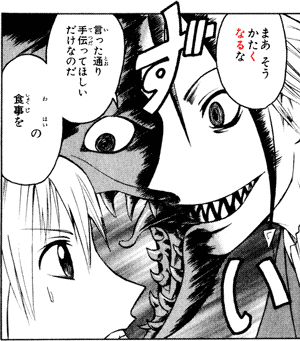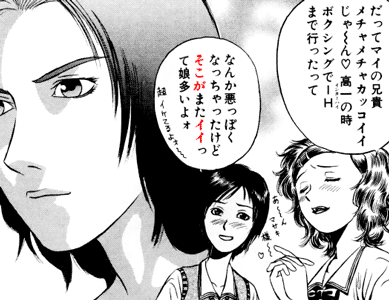In Japanese, ~ku naru ~くなる (~ku ~く adverbial copula plus naru なる) means "will become X" or "will be X" when ~ku is attached to the stem of an i-adjective; when it's attached to the negative form a verb (~naku naru ~なくなる), it means "will stop being" or "will stop doing," in the sense of "used to do it, but won't do it anymore" instead.
- {akaku} naru
赤くなる
To become {red}.- akai 赤い is an i-adjective for the color "red."
- {awanaku} naru
会わなくなる
To stop {meeting}. (in the sense of we used to meet, but we won't be meeting anymore.)- au 会う, "to meet."
- {arukenaku} naru
歩けなくなる
To stop being {able to walk}.- arukeru 歩ける, "to be able to walk," potential form of aruku 歩く, "to walk."
Grammar
See the article about naru なる for details about grammar and conjugation. This article is for examples only.
The phrase ~ku suru ~くする is the causative counterpart of ~ku naru.
The phrase ~ni naru ~になる is used with na-adjectives and no-adjectives (nouns). These words take the da だ copula, which becomes the ni に adverbial copula, while i-adjectives have the ~i ~い copula, which becomes the the ~ku ~く adverbial copula.
The phrase ~nai you ni naru ~ないようになる is synonymous with the ~naku naru ~なくなる used with verbs. The phrase ~you ni naru ~ようになる is used with verbal stative predicates (stative verbs, habitual predicates), as verbs lack an adverbial form which naru requires, however the negative form is conjugated like an i-adjective, which does have an adverbial form (~ku), allowing the negative form to be used with naru without the ~you ~よう auxiliary.
Examples
- Context: Nougami Neuro 脳噛ネウロ
threatenscalms Katsuragi Yako 桂木弥子. - maa, {sou kataku} naru na
まあ そうかたくなるな
[Now], don't become {so [nervous]}.- katai
かたい
Solid. Hard. Stiff.
Formal. Uncomfortable. Nervous.
- katai
- {itta} toori te-tsudatte hoshii dake na no da
言った通り手伝ってほしいだけなのだ
As [I] {said}, all [I] want is for [you] to help [me]. - waga-hai no shokuji wo
我が輩の食事を
With my meal.- X wo te-tsudau
〇〇を手伝う
To help with X. - In this series, Neuro eats mysteries, so his "meal" is a mystery, literally.
- X wo te-tsudau
- Context: girls talk about a guy.
- datte Mai no aniki mechakucha kakkoii jaa~~n ❤
だってマイの兄貴メチャクチャカッコイイじゃ~~ん❤
[That's because] Mai's older brother is super cool~~❤ - kou ichi no toki bokushingu intaahai made itta tte
高一の時ボクシングでIHまでいったって
During first year of high school [he] even went to the boxing inter-high. - nanka {waruppoku}nacchatta kedo
なんか悪っぽくなっちゃったけど
[He] became {sorta bad} but... (bad in the delinquent sense.) - {{soko ga mata ii} tte} musume ooi yoo
そこがまたいいって娘おおいよォ
Girls [who] {think {that part, too, is good}} are many.- i.e. many girls think him looking a like a delinquent makes him even more attractive.
- chou iketeru yoo~~
超イケてるよォ~
[He's] looking super good~~ - a~~~n
あ~~~ん- *blushes*
- Masaki-sama❤
マサキ様❤- His name.
With Negative Verbal Statives
- Context: the characters are trapped.
- {hachi-kai kara derenaku} natte-iru...
8階から出れなくなっている・・・
[It] has become so that {[we] can't leave the eighth floor}.
[We] are no longer able to leave the eighth floor.- hachi-kai kara derenai - "[we] can't leave the eighth floor."
- derenaku - adverbial form of derenai 出れない, "can't leave," negative form of dereru 出れる, "to be able to leave," potential form (missing ra ら) of deru 出る, "to leave."
- ~kai - counter for floors.
- n... {{hachi-kai kara derareru} you ni} natta-n-desu ka?
ん・・・8階から出られるようになったんですか?
Hmm... did [it] become {so [that] {[we] can leave the eighth floor}}?
Hmm... can we leave the eighth floor now?- hachi-kai kara derareru - "[we] can leave the eighth floor."
- derareru - potential form (including ra ら) of deru 出る.
- zan'nen nagara mada muri-ppoi
残念ながらまだ無理っぽい
Unfortunately [it] seems to be still impossible.



No comments: